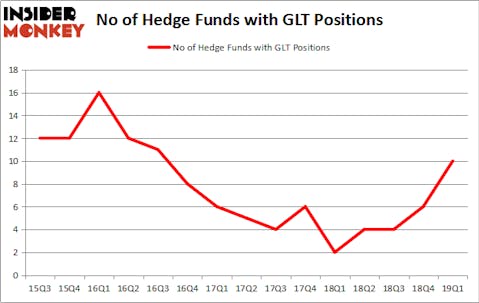“Since 2006, value stocks (IVE vs IVW) have underperformed 11 of the 13 calendar years and when they beat growth, it wasn’t by much. Cumulatively, through this week, it has been a 122% differential (up 52% for value vs up 174% for growth). This appears to be the longest and most severe drought for value investors since data collection began. It will go our way eventually as there are too many people paying far too much for today’s darlings, both public and private. Further, the ten-year yield of 2.5% (pre-tax) isn’t attractive nor is real estate. We believe the value part of the global equity market is the only place to earn solid risk adjusted returns and we believe those returns will be higher than normal,” said Vilas Fund in its Q1 investor letter. We aren’t sure whether value stocks outperform growth, but we follow hedge fund investor letters to understand where the markets and stocks might be going. That’s why we believe it would be worthwhile to take a look at the hedge fund sentiment on P.H. Glatfelter Company (NYSE:GLT) in order to identify whether reputable and successful top money managers continue to believe in its potential.
Is P.H. Glatfelter Company (NYSE:GLT) a bargain? The best stock pickers are getting more optimistic. The number of bullish hedge fund positions increased by 4 in recent months. Our calculations also showed that GLT isn’t among the 30 most popular stocks among hedge funds. GLT was in 10 hedge funds’ portfolios at the end of March. There were 6 hedge funds in our database with GLT positions at the end of the previous quarter.
Hedge funds’ reputation as shrewd investors has been tarnished in the last decade as their hedged returns couldn’t keep up with the unhedged returns of the market indices. Our research has shown that hedge funds’ small-cap stock picks managed to beat the market by double digits annually between 1999 and 2016, but the margin of outperformance has been declining in recent years. Nevertheless, we were still able to identify in advance a select group of hedge fund holdings that outperformed the market by 40 percentage points since May 2014 through May 30, 2019 (see the details here). We were also able to identify in advance a select group of hedge fund holdings that underperformed the market by 10 percentage points annually between 2006 and 2017. Interestingly the margin of underperformance of these stocks has been increasing in recent years. Investors who are long the market and short these stocks would have returned more than 27% annually between 2015 and 2017. We have been tracking and sharing the list of these stocks since February 2017 in our quarterly newsletter.

We’re going to view the key hedge fund action surrounding P.H. Glatfelter Company (NYSE:GLT).
How are hedge funds trading P.H. Glatfelter Company (NYSE:GLT)?
At the end of the first quarter, a total of 10 of the hedge funds tracked by Insider Monkey were bullish on this stock, a change of 67% from one quarter earlier. The graph below displays the number of hedge funds with bullish position in GLT over the last 15 quarters. With the smart money’s sentiment swirling, there exists a select group of key hedge fund managers who were upping their holdings substantially (or already accumulated large positions).

According to publicly available hedge fund and institutional investor holdings data compiled by Insider Monkey, Clint Carlson’s Carlson Capital has the largest position in P.H. Glatfelter Company (NYSE:GLT), worth close to $16.9 million, amounting to 0.3% of its total 13F portfolio. On Carlson Capital’s heels is Royce & Associates, managed by Chuck Royce, which holds a $2.9 million position; less than 0.1%% of its 13F portfolio is allocated to the stock. Remaining hedge funds and institutional investors with similar optimism encompass Israel Englander’s Millennium Management, John Overdeck and David Siegel’s Two Sigma Advisors and Ken Griffin’s Citadel Investment Group.
As aggregate interest increased, specific money managers have been driving this bullishness. Royce & Associates, managed by Chuck Royce, created the biggest position in P.H. Glatfelter Company (NYSE:GLT). Royce & Associates had $2.9 million invested in the company at the end of the quarter. Israel Englander’s Millennium Management also made a $1.9 million investment in the stock during the quarter. The other funds with new positions in the stock are David Harding’s Winton Capital Management, Mike Vranos’s Ellington, and Michael Platt and William Reeves’s BlueCrest Capital Mgmt..
Let’s also examine hedge fund activity in other stocks – not necessarily in the same industry as P.H. Glatfelter Company (NYSE:GLT) but similarly valued. We will take a look at KNOT Offshore Partners LP (NYSE:KNOP), ChipMOS TECHNOLOGIES INC. (NASDAQ:IMOS), G1 Therapeutics, Inc. (NASDAQ:GTHX), and RadNet Inc. (NASDAQ:RDNT). This group of stocks’ market values resemble GLT’s market value.
| Ticker | No of HFs with positions | Total Value of HF Positions (x1000) | Change in HF Position |
|---|---|---|---|
| KNOP | 4 | 13665 | -1 |
| IMOS | 2 | 25129 | 1 |
| GTHX | 11 | 19755 | 0 |
| RDNT | 14 | 84001 | 0 |
| Average | 7.75 | 35638 | 0 |
View table here if you experience formatting issues.
As you can see these stocks had an average of 7.75 hedge funds with bullish positions and the average amount invested in these stocks was $36 million. That figure was $25 million in GLT’s case. RadNet Inc. (NASDAQ:RDNT) is the most popular stock in this table. On the other hand ChipMOS Technologies (Bermuda) Ltd (NASDAQ:IMOS) is the least popular one with only 2 bullish hedge fund positions. P.H. Glatfelter Company (NYSE:GLT) is not the most popular stock in this group but hedge fund interest is still above average. Our calculations showed that top 20 most popular stocks among hedge funds returned 6.2% in Q2 through June 19th and outperformed the S&P 500 ETF (SPY) by nearly 3 percentage points. Hedge funds were also right about betting on GLT as the stock returned 14.3% during the same period and outperformed the market by an even larger margin. Hedge funds were rewarded for their relative bullishness.
Disclosure: None. This article was originally published at Insider Monkey.





